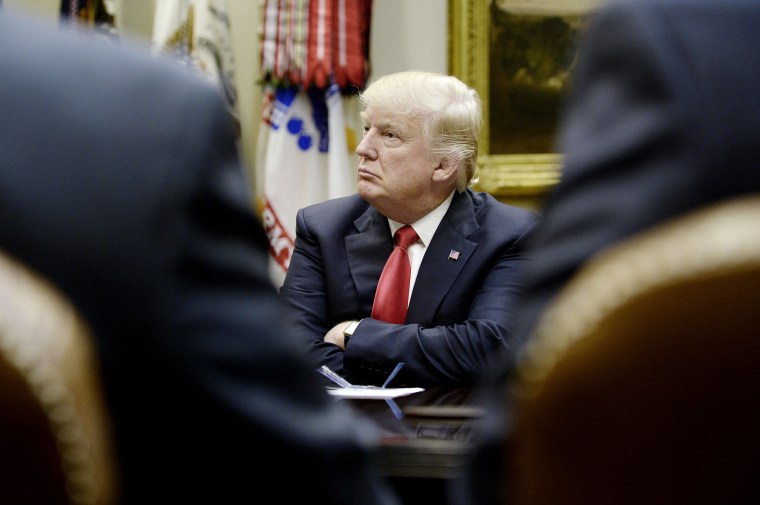One of the more alarming aspects of Donald Trump's Russia scandal is how guilty White House officials are acting. As we discussed yesterday, people who are innocent -- those who expect to be fully exonerated -- don't usually try to end ongoing investigations, lash out at witnesses, and suppress questions.They also tend not to change their story.It hasn't yet been two full days since the president fired FBI Director James Comey, who was overseeing a counter-espionage investigation into the Russia scandal. The Washington Post's Aaron Blake had an excellent piece this morning noting a key problem with the White House's explanation: it keeps changing.
It has been 36 hours since the White House announced that President Trump had fired James B. Comey as FBI director. And its rationale and explanations for that move continue to fall apart.
Team Trump said on Tuesday that Comey's ouster was the Justice Department's decision, only to say the opposite on Wednesday. Team Trump said on Tuesday that the memo from Deputy Attorney General Rod Rosenstein forced the president's hand, only to acknowledge on Wednesday that Trump told Rosenstein to write the memo.Team Trump said on Tuesday that the firing was the result of Comey's handling of the investigation into Hillary Clinton's emails, only to abandon that story on Wednesday.Team Trump said on Wednesday that the president "had lost confidence in Comey from the day he was elected." Team Trump said the exact opposite as recently as last week.I realize that in some cases, an official version of events will gradually come into sharper focus, as more details come to light, but that doesn't explain these changes. The White House has tried to explain why the president felt the need to fire the director of the FBI at a critical junction in the FBI's investigation into the president's campaign, and the official line started crumbling under the weight of its own contradictions almost immediately.The most forgiving response to this is to assume members of Team Trump are incompetent and have no idea what they're saying from one day to the next. The less forgiving response is to assume that they're covering up an outrageous abuse.Either way, when the president makes a decision like this, and his aides can't keep their stories straight about that decision, alarm bells start going off.One of the nice things about telling the truth is that it's easy to remember, and since it doesn't get discredited, the truth doesn't have to evolve.
